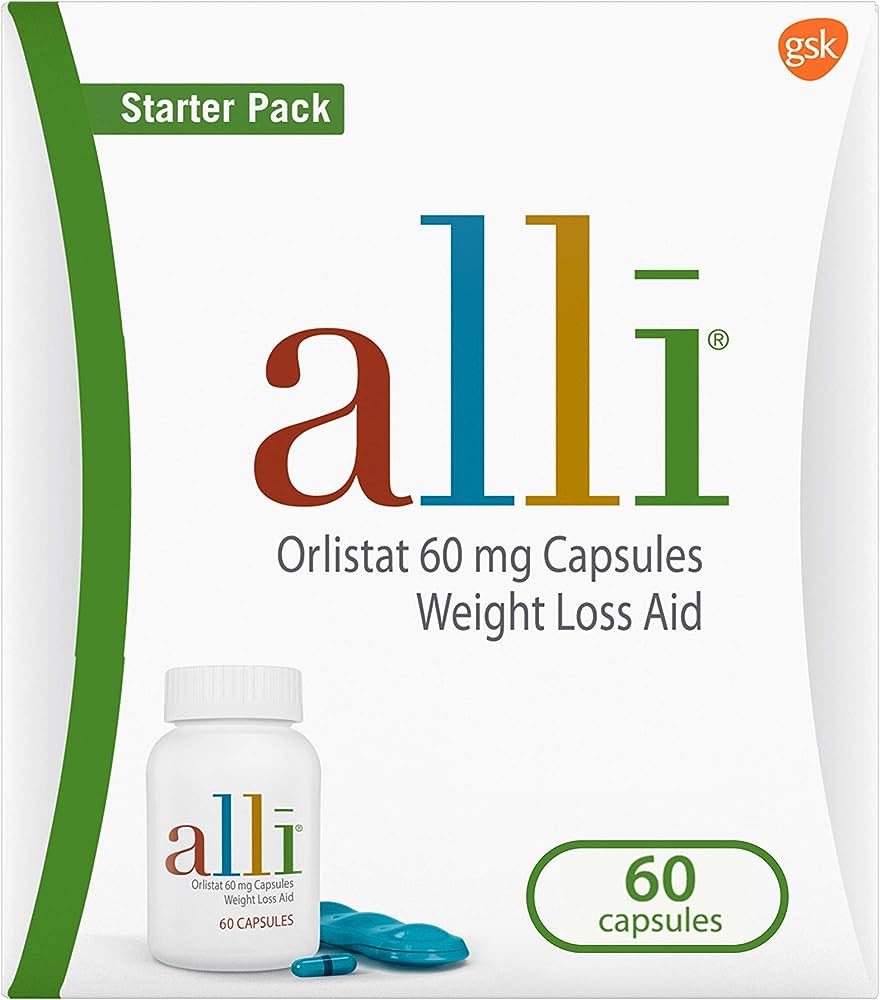Belly fat is not only unsightly, but it also poses a health risk. Diabetes, heart disease, stroke, and some cancers are more likely to happen if you have too much belly fat. Losing belly fat improves both health and appearance.
But losing belly fat isn’t easy. It involves changes in food, exercise, and way of life. You may not always get the desired results, even if you try hard. Because of this, some people try pills that promise to help them lose belly fat faster and easier.
But do these pills work? And do you know if they are safe? In this article, we’ll talk about some of the most famous and effective pills that may help you lose belly fat and their benefits, risks, and limits.
The best pills to lose belly fat
There are many pills that can help you lose belly fat. The famous and effective ones include:
Alli: Best pill to lose belly fat
Like its pharmaceutical counterpart, Orlistat, Alli prevents the digestive tract from absorbing fat. Alli can help with weight loss by blocking the absorption of about 25% of dietary fats.
Numerous studies have demonstrated that Alli may support weight loss of up to 10% in a single year, which is more than is possible with diet and exercise alone. Alli isn’t perfect, however. Oily stools, flatulence, diarrhea, and vitamin shortages are all possible adverse effects. In addition, a low-fat diet is required for Alli to be practical. Consuming an unhealthy amount of fat may cause a variety of gastrointestinal issues.

As a result, you can’t expect to reduce belly fat with little effort with Alli. A good diet and regular exercise are still necessary for lasting success. Alli may interact with other medications or health issues, so it’s best to check with your doctor first.
Here are some of the pros and cons of Alli:
Pros:
- Alli has been clinically proven to aid in weight loss more than just dieting and exercise alone.
- Alli is easy to access and does not require a prescription. You can buy it from most pharmacies and online retailers.
- Alli can help you control your portions and reduce your snacking. Since it blocks fat absorption, it can make you feel full and prevent overeating.
Cons:
- Alli can cause unpleasant side effects, such as oily stools, gas, diarrhea, and vitamin deficiencies. Following a low-fat diet can reduce these side effects, but they may still occur.
- Alli can be expensive, especially if you take it for a long time. You must pay for it out of pocket because insurance does not cover it.
- Alli requires a commitment to a healthy lifestyle. It is not a magic pill that can make you lose weight without effort. You must still follow a balanced diet and exercise routine to achieve long-term results.
Conjugated linoleic acid (CLA): Best pill to lose belly fat
Some dairy and meat products contain conjugated linoleic acid (CLA), a type of fatty acid that occurs naturally. It may help reduce body fat, especially in the abdomen, by increasing your metabolism and muscle mass.
Several studies have shown that CLA can help you lose up to 3% of your body weight in 6 months. However, CLA also has some limitations. It may not work for everyone, as its effects may vary depending on your genes and diet. It may also cause side effects such as digestive problems, inflammation, and insulin resistance.
Therefore, CLA is not a miracle pill that can make you lose belly fat without any risk. You must still follow a balanced diet and exercise routine to optimize its benefits. You should consult your doctor before taking CLA, as it may have contraindications or interactions with other drugs or health conditions.
Here are some of the pros and cons of CLA:
Pros:
- CLA may help reduce body fat, especially in the abdomen, by increasing metabolism and muscle mass. Several studies have shown that CLA can help you lose up to 3% of your body weight in 6 months.
- CLA may reduce the likelihood of developing type 2 diabetes by enhancing blood sugar and insulin sensitivity.
- Some studies have found that CLA can lower fasting blood glucose, hemoglobin A1c, and insulin resistance in people with diabetes or prediabetes.
- CLA may have anti-inflammatory and antioxidant properties, which could protect your cells from damage and inflammation. In studies, CLA has been suggested to modulate the immune system and decrease pro-inflammatory cytokine production.
Cons:
- CLA may not work for everyone, as its effects may vary depending on your genes and diet. Some people may not respond to CLA or may need higher doses to see any benefits.
- CLA may cause side effects like digestive problems, nausea, diarrhea, fatigue, and headaches. These side effects may be more common or severe with higher doses or longer-term use of CLA.
- CLA may interact with other drugs or health conditions, such as blood thinners, antidiabetic medications, or liver disease. You should consult with your doctor before taking CLA, especially if you have any medical issues or are taking any medications.
GLP-1 agonists: Best pill to lose belly fat
Glucagon-like peptide-1 agonists are injectable medications that imitate the effects of the glucagon-like peptide-1 hormone, which controls hunger and blood sugar levels. By increasing satiety and decreasing food intake, they facilitate weight loss.
Liraglutide (Saxenda) and liraglutide (Wegovy) are two GLP-1 agonists that the FDA has approved for the treatment of obesity. Several studies have shown that using GLP-1 agonists might result in a weight loss of up to 15% in one year. There are, however, risks associated with GLP-1 agonists. Possible negative responses to injection sites include nausea, vomiting, diarrhea, constipation, and hives. GLP-1 agonists are also costly and must be injected once a day or weekly.
That said, GLP-1 agonists are not a magic bullet for effortless fat loss in the abdominal region. To maximize their benefits, you should still eat well and exercise often. GLP-1 agonists may interfere with other medications or health issues, so talking to your doctor before starting treatment is essential.
However, GLP-1 agonists also have pros and cons that you should be aware of before taking them. Here are some of the advantages and disadvantages of GLP-1 agonists:
Pros:
- GLP-1 agonists are highly effective at lowering blood glucose and A1C levels. They can help you achieve your diabetes management goals and prevent complications.
- GLP-1 agonists, a drug used to treat diabetes and obesity, can cause significant weight loss. Semaglutide (Ozempic) is an example of a GLP-1 drug that can help you lose up to 15% of your body weight in a year.
- GLP-1 agonists are easy to use and have flexible dosing options. Most GLP-1 drugs are injectable medications that you can take once daily or weekly. Some GLP-1 drugs, such as semaglutide (Rybelsus), are available in tablet form that you can take orally once daily.
Cons:
- GLP-1 agonists can cause unpleasant side effects, such as nausea, vomiting, diarrhea, constipation, and injection site reactions. These side effects may be more common or severe with higher doses or longer-term use of GLP-1 drugs.
- GLP-1 agonists can be expensive, especially if your insurance does not cover them. You may have to pay out of pocket for these medications or look for assistance programs to afford them.
- GLP-1 agonists may interact with other drugs or health conditions, such as blood thinners, antidiabetic medications, or liver disease. You should consult your doctor before taking GLP-1 drugs, especially if you have any medical issues or are taking any medications.
Phentermine/topiramate (Qsymia): Best pill to lose belly fat
Qsymia (phentermine/topiramate) is an effective weight loss medication since it combines the benefits of both medicines. Phentermine, a psychostimulant, helps you eat less and want less food. Topiramate, an anticonvulsant, increases the efficacy of phentermine and prolongs satiety.
Several studies have shown that using Qsymia may reduce your weight by as much as 10% in a year. There are, however, drawbacks to using Qsymia. Dry mouth, sleeplessness, mood swings, and even birth deformities are all possible adverse effects. Because of its status as a prohibited drug, Qsymia may only be obtained with a doctor’s prescription and close medical supervision.
Therefore, Qsymia is not a worry-free method of losing abdominal fat. You should continue your low-calorie diet and exercise program to maintain its advantages. Because of the possibility of medication interactions and contraindications, you should talk to your doctor before starting treatment with Qsymia.
Naltrexone/bupropion (Contrave)
Naltrexone/bupropion (Contrave) is another combination of two drugs that affect your brain chemistry and reduce your cravings for food and addictive substances. Naltrexone blocks the pleasurable effects of opioids, while Bupropion increases mood and energy.

According to several studies, Contrave can help you lose up to 5% of your body weight in a year. However, Contrave also has some drawbacks. It may cause side effects such as nausea, headaches, constipation, and seizures. Moreover, Contrave is a prescription drug that requires regular follow-up by your doctor.
Therefore, Contrave is not a harmless pill that can make you lose belly fat without any side effects. You should consult your doctor before taking Contrave, as it may interact with other drugs or health conditions. Regular exercise and a healthy diet are essential to maintaining its benefits.
Conclusion
As you can see, no single pill can make you lose belly fat quickly and safely. All the pills that we reviewed have some benefits, but also some risks and limitations. They are not magic solutions that can replace a healthy lifestyle. You still need to follow a balanced diet and exercise routine to achieve long-term results. You should also consult with your doctor before taking any weight loss medication, as it may have contraindications or interactions with other drugs or health conditions.
Remember, losing belly fat is not only good for your appearance but also for your well-being. Investing time and effort to find the best way to lose belly fat can improve your well-being.

